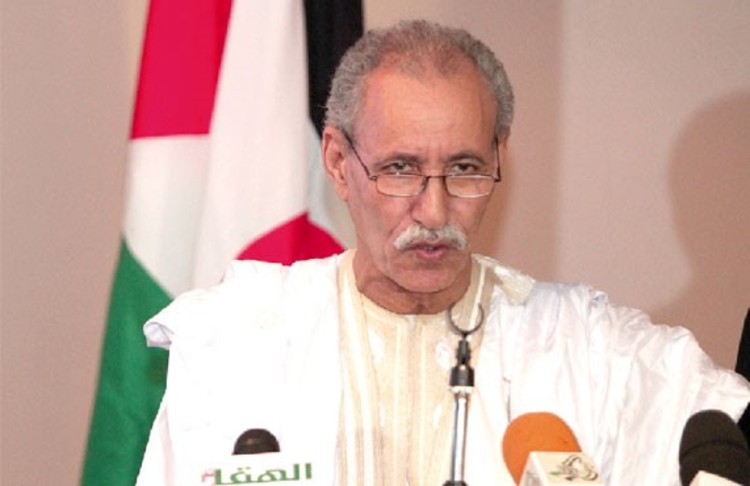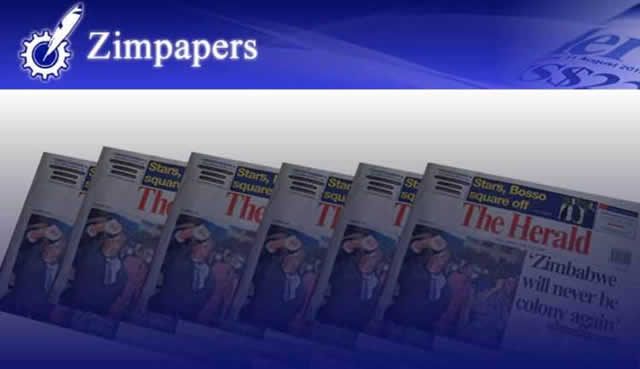Saharawi, Zambia: May the truth be known!

Hildegarde The Arena
In two consecutive instalments, fellow columnist Delta Milayo Ndou spoke about an important issue as the digital divide in Zimbabwe gets narrower and narrower. If this writer got her right, she was saying the information glut in cyberspace has created a major constraint: separating truth from untruth; authoritative from unauthoritative information. I totally agree with Ndou’s observations, and would add that in our environments, where these gadgets are still considered elitist, the additional problem is determining the veracity of the information that passes through the growing number of electronic platforms.
This piece about the Saharawi (Sahrawi) Arab Democratic Republic is just about that, and, I was saved by the African Union’s information and communication directorate’s July 25 statement on the state of Morocco at the 27th Ordinary Session of the Assembly of AU Heads of State and Government Summit, held in the Rwandan capital Kigali, recently.
Just like the recognition of Palestine has been mired in controversy, so too the Saharawi Arab Democratic Republic. Only progressive nations have recognised the nationhood of these two states, and Zimbabwe is one of them. Saharawi continues to fight for its freedom from Morocco’s colonialism.
Dear reader, you might wonder what I am trying to say about the Saharawi.
Just before the Kigali Summit, the writer picked up a story that claimed that Zambia had cut diplomatic ties with the SADR. The reports were from the Morocco World News websites and others like Sahara. The other story was written by Elvis Boh on Africa News.
According to the Africa News report, the decision by Zambia “was announced by Zambian foreign minister Henry Kalaba shortly after the Polisario Front Movement appointed Ibrahim Ghali as the new leader, to replace Mohamed Abdel Aziz, who died in May.”
The report went on to say that Morocco had welcomed Zambia’s move.
Considering the lengthy struggle waged by the Polisario Front, and also considering that they had just appointed a new leader, after the death of its long term leader Mohamed Aziz, this move (if at all it is true), was a major blow from a country that was among the forerunners of fighting colonialism in Africa.
North Africa Post in its July 10 story headlined “Zambia deals heavy blow to Polisario the day it announces Ibrahim Ghali new leader”, said more or less the same: “Zambia announced the withdrawal of its recognition of the Polisario’s self-proclaimed republic, the same day the separatist group announced the election of Algeria’s henchman Ibrahim Ghali as a new Secretary General and president of the auto-proclaimed SADR . . . Zambia’s support for Morocco’s territorial integrity comes at a pertinent moment as Lusaka prepares to take the rotating presidency of the African Union . . .”
The million dollar question is, although individual states choose who they enter bilateral relations with, surely, the story of Zambia revoking its diplomatic ties with the SADR should have been a big story not only in Morocco, but in Zambia and the sadc region as well.
More than 80 United Nations member states have recognised the independence of SADR, and you then ask yourself why there was conspicuous silence from their media on the issue. Who is fooling who?
It also becomes a real game changer when the story was broken days before the AU Kigali Summit, an auspicious event where the Moroccan king sent his envoy to indicate its intention to rejoin the continental body.
The only Zambian story report was from Lusaka Times and authored by one Dammy Hammed on July 10, which also said: “The Zambian Government has decided to withdraw its recognition of the so-called Sahrawi Arab Democratic Republic (SADR), a partially recognised state that controls an area in the Western Sahara region.
“Foreign Minister Harry Kalaba announced that Zambia has since broken off its diplomatic relations with the entity. During a joint Press conference with the Moroccan Minister Delegate to the Minister of Foreign Affairs and Cooperation, Nasser Bourita on Saturday in Rabat, Mr Kalaba said ‘the Government of the Republic of Zambia decided to withdraw its recognition of the self-proclaimed RASD and cut its diplomatic relations with this entity’.”
More searches on the Internet gave the impression that more than half of the African Union membership had revoked their recognition of the Saharawi as an independent state, but surprisingly, the mouthpiece is the Moroccan media.
The writer inquired from the Saharawi Arab Democratic Republic’s ambassador to Zimbabwe Mr Mohamed Chiej Saleh Ali, who said in a statement:
“The Government of the Saharawi Arab Democratic has not yet received any official notice from the Government of the Republic of Zambia and we read the news only in the Moroccan media.
“The Republic of Zambia is one of the first African countries, which recognised the Saharawi Arab Democratic on 12 October 1979, just a few years after the struggle of the Saharawi people sparked in Western Sahara against Morocco occupation, and also one of those countries which defended strongly the right of Saharawi people to self-determination dictated by its history and principles in defending the right and freedom of peoples.”
Ambassador Ali added: “In international law, the recognition by state to other state is a sovereign decision, but is irreversible. We believe that the history of Zambia in supporting the freedom of the peoples and the long struggle of its people against colonialism is higher than following the ambitions of Morocco, the occupier of Western Sahara, the last colony in Africa, especially today, when Africa today looks forward to eradicating any kind of colonialism in the continent and live in peace and prosperity.”
“The SADC position towards the Saharawi struggle for the liberation of their land is firm and never changes. The President of the Republic of Zimbabwe His Excellency, Robert Gabriel Mugabe, championed Africa in defending the Saharawi struggle. The Minister of Foreign Affairs Honourable Simbarashe Mumbengegwi in his declaration on the eve of the 27th AU Summit in Kigali was clear when he expressed the full commitment of the region and Africa as a whole to support the Saharawi Republic and the Struggle of its people.”
The July 25 AU Press release — “Morocco did not attend or address the 27th AU Summit in Kigali, Rwanda” — puts paid to the misinformation doing the rounds on social media (maybe), lies that want to portray a divided African Union on such a critical issue.
The African Union Commission said it sought: “to clarify that the Kingdom of Morocco did not attend or address the 27th Assembly of Heads of State and Government that was held on 17-18 July 2016, in Kigali, Rwanda. However, President Idriss Deby Itno, President of the Republic of Chad and current Chairperson of the African Union informed the Chairperson of the AU Commission, H.E Nkosazana Dlamini Zuma, that he had received a correspondence from the King of Morocco, H.M. Mohammed VI, regarding the intention of Morocco to join the African Union (AU).
“This issue was neither an agenda item of the Summit nor a subject of discussion during the proceedings of the Assembly of Heads of State and Government. In this regard, the AU Commission wishes to recall Article 29 of the Constitutive Act of the African Union, and relating to “Admission to Membership,” which states that:
1. Any African State may, at any time after the entry into force of this Act, notify the Chairman of the Commission of its intention to accede to this Act and to be admitted as a member of the Union.
2. The Chairman of the Commission shall, upon receipt of such notification, transmit copies thereof to all Member States. Admission shall be decided by a simple majority of the Member States. The decision of each Member State shall be transmitted to the Chairman of the Commission who shall, upon receipt of the required number of votes, communicate the decision to the State concerned.
“In addition, the AU Commission wishes to recall that the AU Constitutive Act does not have any provision for the expulsion of any Member State of the Union.”
This was the spirit as spelt out by Ambassador Ali when he said, “The 27th AU Summit showed its full support to the Saharawi Republic as a full member of it and the AU recognises the positive experience among African Family. The Heads of State and Government stood a minute of silence on the soul of the late President of the Saharawi Republic Mohamed Abdel-Aziz as one of the founding Chiefs of the AU and welcomed the new elected president Ibrahim Ghali.
“The Chairperson of the AU Commission Madame Zuma reiterated in her speech and report the commitment of the AU to decolonisation of Western Sahara and the constant support to the legitimate struggle of its people for self-determination.”
But is Morocco trying to spoil the continental bloc’s unity using Saharawi?
Ambassador Ali said, “Morocco’s intention to join the AU was in the context of dragging Africa in divisions again, but Africa denied Morocco’s request and sent to it a very clear message that it is welcome only if it gives up its occupation to the Saharawi Republic and recognises the organisation of the referendum of self-determination of the Saharawi people.”
This AU spirit was felt after the death of President Abdel Aziz when messages of grief to the Saharawi people came from most parts of the continent. But it was Minister Mumbengegwi who on Africa Day reminded the continent that it cannot afford to forget about Africa’s last colonial vestige, colonised by another African state.
Said Minister Mumbengegwi: “To this day, our brothers and sisters in Western Sahara still wallow under occupation from a fellow African country. The case of Western Sahara remains an albatross on our collective conscience. There is need to give the much needed impetus to the long journey for self-determination of the Saharawi people . . .
“Only recently, the AU Special Envoy was denied formal audience at the United Nations Security Council. These developments are deplorable. We must demand that (MINURISO) be restored in full and that it starts to organise the long overdue referendum on Western Sahara which is MINURISO’s core mandate,” he said.










Comments